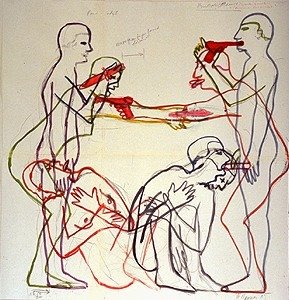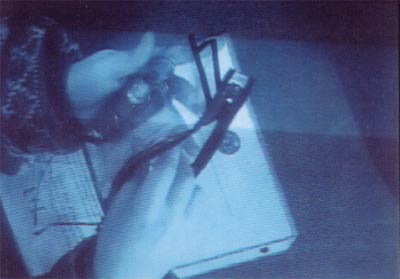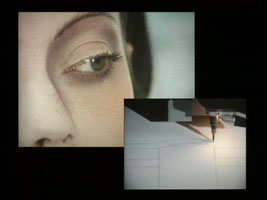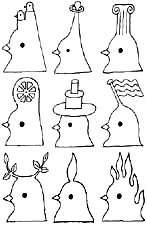
Outcome
We see every outline as them
And yet they are not we veiled
By this event not desiring
To be gathered again
By some historical operation
I want to love them and yet I also
Want them flung exited by some
Side-door that only leads
To another wilderness deserts of
These withdrawn interviews.
An Autobiography of Henry James by Chris Marker
The eye sees the victims
From which its dislodged
And participates in its own
Capture in order to lose
The captive again
The cause of death
Hunting the hunter
Or the hunted having memories
Before they could be made
There are four frames
Four thresholds and therefore
Four ways to fear
In choosing oneself guilt pries
From us our fingers and
Stammers alibi
This womb of time a time of
Wounds becoming true
Unhealable the double at the
Door is not the double
You thought you were
But each so many fires
That burned us and
Gave us unbearable wills
While what we stalked were
What we still could be.
Stealth
A need to hide radiantly
On the branches and in the white
Webbed hollow of a tree
As it roots too much.
The shadows only
Come alive
When they’re struck.
For now is not treasonous
Being like a wall before a stage
Not a question.
*
Cut to no longer closing
No longer this admired
Window but as we sing
Into an orifice monads cathect
Each other distantly
The distant spirals of these minute plans
Exceeding a pale of means
Or dates as they’re remarked
By a repetitious glance.

Cremaster III.
Those stilts your torso rests on
Frighten that half of me
Which is not myself
In a play of mending half-lives
And one more tooth
Blown out
Discharge makes for lived tableau
Time of costumes
Space of vicissitude
Meeting at Ground Zero
Culture dreams
A mass of like-to-kill
To claw where magic
Makes its face
And skin cools colder steel
Vaseline holds for allegory
We who remain
Much vicious and take lovers lately.
Emersonian
Promise me love
Your force disunite
A sky for our stalking
Singing the wilder
Fires of hoarded salt
No image forgives
Which strips us of sight.
Show me matter
Make me a new ring
For the eyes which cry
Rapt now I is reap
Now I’s a drowsy rim
By the waters of receded
Struggle and weather
Recalled by rhyme.
I fail to lift how I fail
And yet it goes on beginning
Anywhere in proposed song.
Rousseau Barouque
Opaquer flame hearth frame
Johanne know knowing only sometimes
Destroys the object known.
Cannibals show-brie-on,
Fire themes through a string
In the eye. See sky for what
We are not what opens
Too much towards its freedom.
About When, Which Should Never Be Forgetting’s Completion
I share this journey towards ice as you share I.
I share a name longing to feign recovery.
To sense thought was an instrument and yet the animal
Still noble. Who become us when it no
Longer matters whether we look.
We might frighten them if we did
Or forget forgetting too soon to be dead.
Dying is shed so why not do? Articles won’t
Be for us nor like anything. Hang up your guns
And thereby shoot crooked. The will becomes
A colder flame too much having been mastered
By love. When our only recourse is to go to hell.
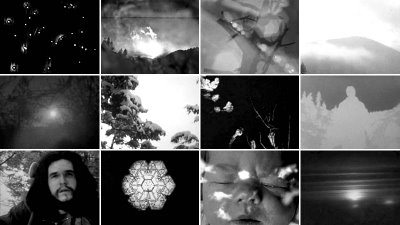
Brakhage I.
Aggregate and slow light
Dive to
This snowblind burden again.
Face
A mountain looming
Being awakened.
Identity
Clearly what we’re seeing
Are these patterns in-echo
Awoken in a cared-for wood
Wed to every existing expression
Placing this finger here
As if to verify the fact
Of this finger being here
Hearing prescription determinately
Words do also constitute
A time of fact
Memories of genes
Cling to other memories
To the hovering genealogies
Of a brain
Or a horizon gently scanned
We die imaginary deaths
So we may always
Like revenants return.
Brakhage II.
That this protective blink
Is actually I identified
By a circle which pierces me
Moved to an opening tone
To a diurnal rhythm
Of slow zooms to difference
Painted by energy and
We flick as far as we can
In that from which we came
Slowing these free-falls
In the body snow fallen
From an unlikely bough.
Distracted
How
it
may
feel
to
wake
and
continue
unaware
these
lapses
were
not
in fact
death.
*
But a kind of sleep
Which may verify
This recognition
We citizens
Of the literal
We witnesses
Of the floating
Worlds I is the last
Time I noted myself
By quoting
Myself the risk
Of this is in
The search
Moving between
Two ranges
And pretending
To be
Of both.
By the Sounds Of What Was Taped as Tape Rolled
As the waves roll they also record
And as the passengers did not know
Their destinations they could not
Prepare for an afterlife.
All the tiny houses of the valley
Are recording this through premonition
Every shift of the wind inaugurates
A position by which we is no longer
Interpellated no coverage being enough.
I feel as though I am approaching it now
A place where suffering points to us
And tells us we are the thresholds
We will always be nothing more.
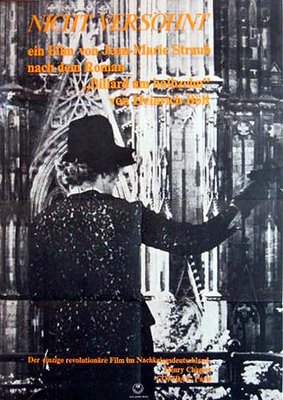
Not Reconciled
One too many lambs sacrificed by one too many buildings bombed.
And reconstituted by the way we walk the basement intact, firing artillery into a more open field.
He's driven this city too many times not to forget the narrow passage your traffic patiently is.
There are too many speeches lacking place for this not to be a film about memory, an embattled hymn or merely a poem.
If she recedes in a pure image of purer space she takes the gun from the drawer remembering prayers as remembering for itself, pleading statelessness & psychosis.
Choose your own reenactment, the other signs are chosen for us and shall not result in reconciliation.
Circles expanded impossibly by an enthusiastical organism.
Who may be lit all day yet do not dream they sleep.
The Preformed Weather
By so many blows in the dark
I remember you as a wandering caress
That has no other territory but voluptuous torque
Nearing forgotten breaths.
Twilight mark how many
Disappeared by hiding’s hidden
Glue bluish gray
Having cows as we may.
Caves within which to unsee
A screen left to its devices
To long unreflectingly without
Remorse for who are real.
Real-Time
To assume that the ballplayers were celebrating in real-time might otherwise seem absurd.
If You Would *Not* Have Visions
The phoney proposals of a hushed and raping voice.
The music of your most private fears.
Car-wrecks hovering on empty pylons.
The vampire, as his lips don’t move, but the answering machine picks-up and he somehow and distantly speaks.
The frozen.
Those words risen in the poem decomposed by a cracking tarn.
Uxorious doubles buried alive.
Music for the deaf, painting for the blind, recipes disappeared in a scentless index.
The unspeakable deeds of unprintable words.
The will to leave.
The face becoming larger as the camera pulls back simultaneously zooming forward.
The sense of terror that one would drink milk while in the background white noises are exploited her labor is that hum unoriginated attacking the nervous system.
The will to feel.
The face as the film burns.
The face as white overexposes.
The reason for tape loops.
Mobile termini.
A discriminate chopping.
The nostalgic bones.
This blood of the image.

The mind will catch up to the body. The memory will make such an adjustment to the screen. As the animal relays our gaze, and the words we are watching betray us. Is this the reason we have chosen to write? I have strayed and yet how I am struck by the symmetry of when we occur.
But I’m not nearly strong enough to forget these events. These moments of an endangered consciousness, laughing and laughing until death-do-us-part, trembling as one can not be at this conception twice. Torture and ecstasy forget only because they can only sense the present. The blood filling the mouth. This should not be hermeneutic.
I am alone now. This is the way you will know me. By a clearing when the treaty has broken. By the warring of war itself in the over-weaned light of telepathized day. The knocking of my autography at woods, the needing and not having of my words. They appear in a struggle to be attentive to immediacy. “However, there a mind’s complexity is a common factor in all minds.” How one understands the world to appear at all.
If there’s disinterest in a thing of beauty then for miles miles don’t touch. The doe doesn’t see the cross-hairs, nor does one need “get-off.” For a while there is no incorporation of the real, nor the fear of such an incorporation. A rock is truly a rock. A stomach never the home of becoming (i.e. merely digestive).
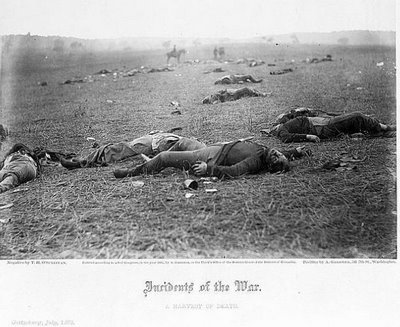
*composed Fall 2003

